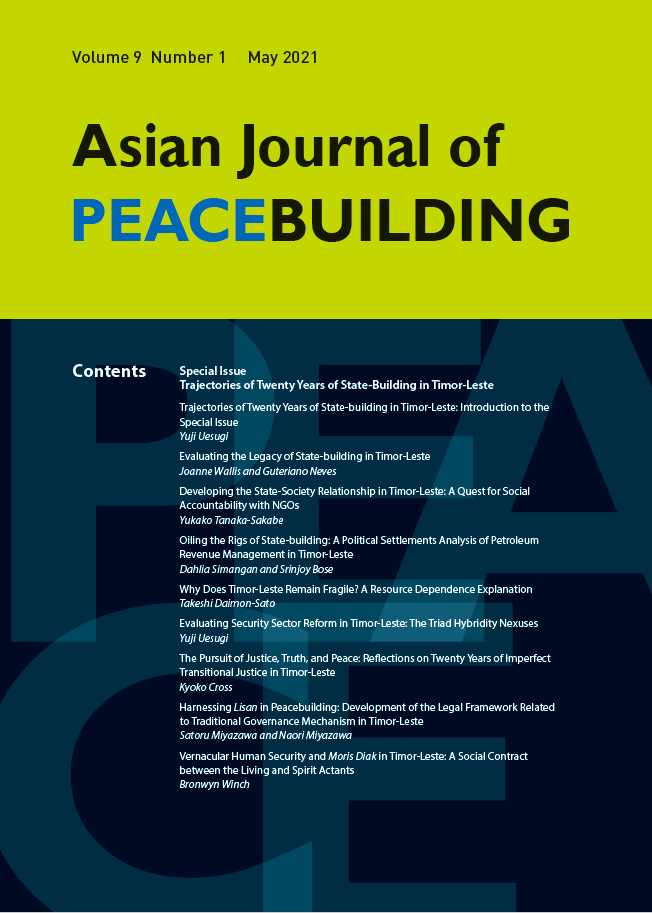This study discusses social accountability in Timor-Leste by scrutinizing the patterns of state-society interactions and the role of non-governmental organizations (NGOs).
Analyzing five case studies in peacebuilding and development, it highlights NGOs’ multiple positions—from oversight and advocacy, to their role in facilitating statesociety
relations in service delivery, suggesting alternative forms of public services, and conveying citizens’ views on government performance to the state. It elaborates how NGOs are closely associated with suco (village) and community authorities and bridge the gap between the state and society. In a fledging state, these dynamics emerge from the state’s attempts to formalize this relationship into law and society’s accommodation of its citizens within the local context. The study also addresses international actors who strive to support NGOs.
Back Issues
Special Issue: Trajectories of Twenty Years of State-building in Timor-Leste
Developing the State-Society Relationship in Timor-Leste: A Quest for Social Accountability with NGOs
Yukako Tanaka-Sakabe pp. 41-66
PDF Download

